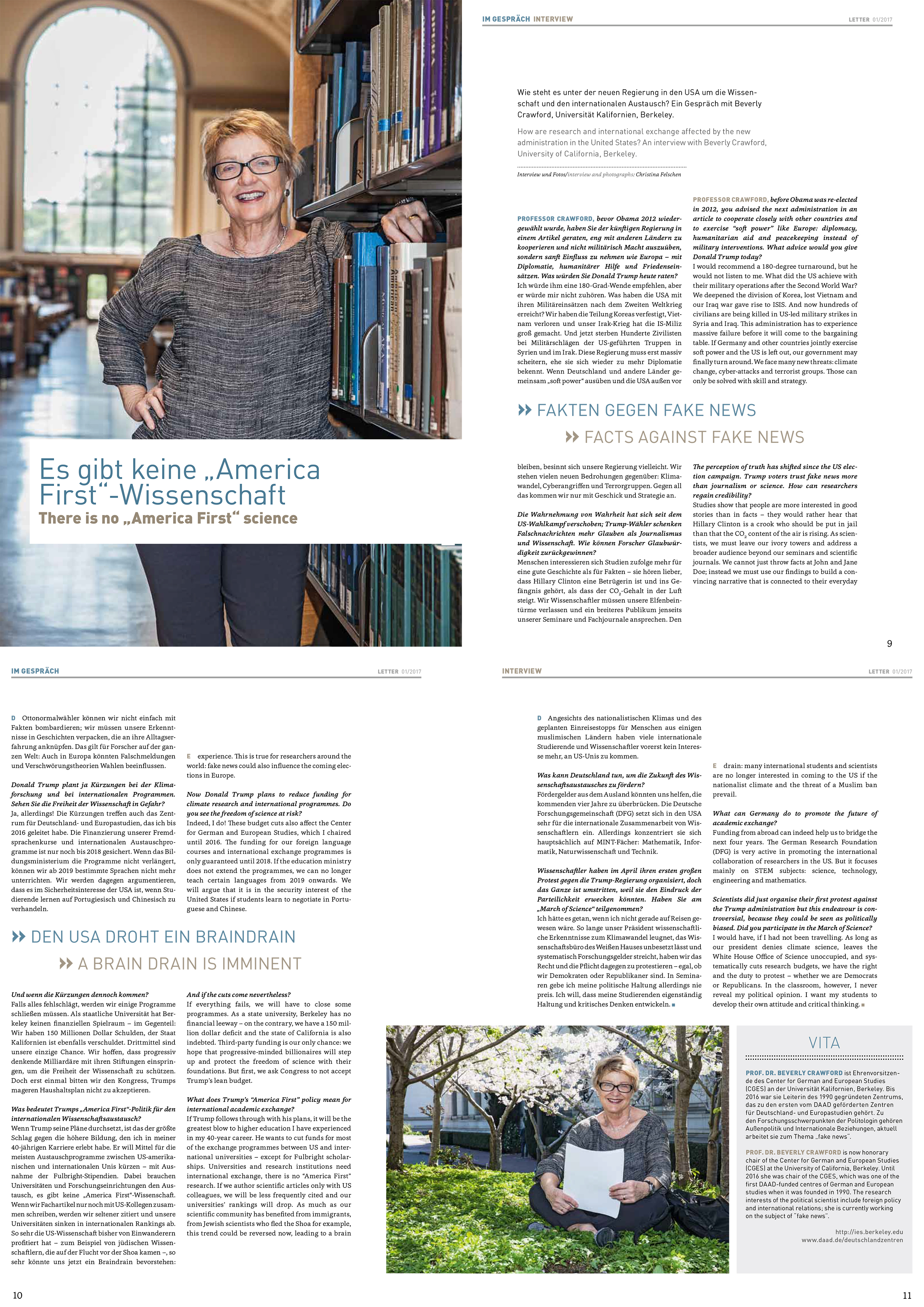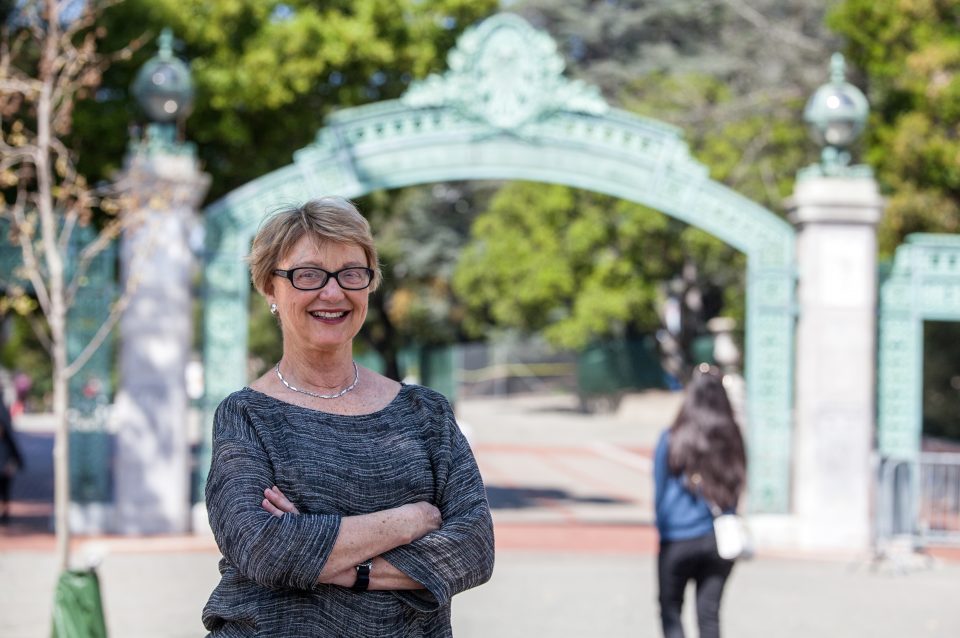Professor Crawford, before Obama was re-elected in 2012, you have advised the next government in an article to cooperate closely with other countries and to exercise “soft power” like Europe: diplomacy, humanitarian aid and peacekeeping instead of military interventions. Donald Trump has turned both principles upside down: He isolates the US, cuts development aid, and raises the military budget. What advice would you give Trump today?
I would recommend a 180-degree turnaround, but he would not listen to me. What did the US achieve with their military operations after the Second World War? We deepened the division of Korea, lost Vietnam and our Iraq war gave rise to ISIS. And now hundreds of civilians are being killed in US-led military strikes in Syria and Iraq. This administration has to experience massive failure before it will come to the bargaining table. If Germany and other countries jointly exercise soft power and the US is left out, our government may finally turn around. We face many new threats: climate change, cyber-attacks and terrorist groups. Those can only be solved with skill and strategy.
The perception of truth has shifted since the US election campaign; Trump voters trust fake news more than journalism or science. How can researchers regain credibility?
Studies show that people are more interested in good stories than in facts – they rather hear that Hillary Clinton is a crook who should be put in jail than that the CO2 content rises in the air. As scientists, we must leave our ivory towers and address a broader audience beyond our seminars and scientific journals. We cannot just throw facts at John and Jane Doe; instead we must use our findings to build a convincing narrative that is connected to their everyday experience. This is true for researchers around the world: Fake news could also influence the coming elections in Europe for example.
Now that Donald Trump plans to reduce funding for climate research…
… and for most international programs…
…do you see the freedom of science at risk?
Continue reading in the magazine of the German Academic Exchange Service (DAAD) >>

